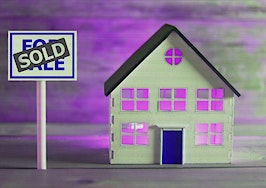Despite the pandemic, we’re moving forward through our days as best as we can. Although the ability to gather, travel, hold events and host celebrations has been severely impacted, life still has to go on.
Surely, the way we do things has changed. Our daily processes and tasks now involve extra steps, and the same goes for our work in real estate. As homes are being bought and sold at a record pace in many areas of the country, everyone needs a refresher on showing properties in the current normal.
Although common courtesy and proper planning have always been hallmarks of the showing process, here are seven etiquette tips for touring and preparing homes for showings amid a pandemic.
1. Caution and consideration
Even though COVID-19-related showing requirements may or may not be in effect where you live and work, this is no time to be careless or casual about entering another person’s home.
If you’re requested to wear masks and gloves, and remove your shoes, please comply, and ensure the buyers do so as well. This is not an issue that’s up for debate or negotiation with the listing agent or the sellers.
Ideally, it should be good practice that agents and their clients wear masks to protect each other, and out of respect for those who live in a property they’re seeing.
As a selling agent preparing to show homes, please take time to read all of the showing instructions, and inform your buyers ahead of time what will be expected of them. If a property requires 24-hour notice, please honor that.
Although there can be exceptions, often, agents don’t take the time to thoroughly read through the showing information on every listing and mistakenly assume they can get in.
Don’t assume every seller or listing agent can accommodate an 11th-hour showing request. There may be too much involved to coordinate between cleaning procedures and vetting the buyers, along with documents that have to be signed ahead of time (see below).
It would be a good idea to instruct buyers to have a supply of masks, gloves and hand sanitizer at the ready when you’ll be working with them to show homes. Do not rely on a listing agent or seller to provide those things.
Add an emergency supply of those items to your essential real estate toolbox that you keep in your car so you don’t run the risk of “access denied.”
2. Signing forms
Some states, such as California, have a mandatory form called the Property Entry and Disclosure Form (otherwise known as the PEAD form) that must be completed, signed and sent over to the listing agent by the showing agent, buyers and everyone accompanying them to view a home.
The form states that those coming through have not been exposed to COVID-19 to the best of their knowledge, have not traveled anywhere that could put them at risk and are not exhibiting any symptoms.
It also reiterates the importance of complying with all state guidelines and recommended guidelines. In California, it’s very simple — no signed-and-submitted form, no showing.
In other states, various Realtor associations may have an optional form, and some brokerages may be utilizing a similar document they require to be signed by showing agents and their buyers seeing the brokerage’s listings prior to coming through.
If you’re in an area where this an optional form, and you and your buyers are requested to sign this as a condition of showing, please comply and do so promptly. This should not be up for negotiation, and buyers need to understand the importance of the form. Should an issue arise, it can also potentially be used as a contact-tracing method.
Numerous places — from supermarket chains to drugstores — are now requiring masks. Some retailers and restaurants are taking temperatures of customers before allowing them in. They’re also operating at limited capacity and requiring reservations. Even gyms are asking people to make appointments and taking their temperature upon entry.
In other words, everything now involves extra planning. Just as there are some precautionary steps being taken by businesses at various levels, the same goes for real estate. A private residence is a sacred place. Just because a property is on the market doesn’t mean it’s OK to loosen up the rules.
3. Vetting the buyer and ensuring properties are a true fit
It bears repeating that there’s no time like the present to double down on qualifying the buyer and ensuring they have all their financial ducks in a row to buy a property.
In many cases, listing agents are requesting a preapproval letter before they can confirm the showing. Coach buyers on what to expect, and have them obtain a current preapproval from a local lender, which they can provide to the listing agent. This is not the time for buyers to be offended or dig their heels in the sand.
In regards to property showings, we’re not in a climate for mismatched showing appointments. As agents, we need to ask a lot of questions and clearly understand what buyers are truly looking for.
There’s a lot of preparation involved with showing a property today — constant cleaning, disinfecting and wiping down surfaces and high-touch points like doorknobs and light switches. With that in mind, please be considerate of the sellers and listing agents who spend so much time getting a property ready for sale.
This is not the time to pull into the driveway and for the buyers to say they don’t want to see the house. If you’ve made an appointment on an occupied home, please honor that appointment.
Explain to the buyer that it’s important to go in and at least give the home a chance. If they nix it now and later realize they might want to come back, it’s possible that the seller won’t allow the showing after being blown off the first time around.
If it’s a vacant home, there can be a bit more latitude, but use your best judgement. If you must cancel the appointment, notify the listing agent as soon as possible, regardless of whether the home is occupied or not. Also — you better have a good reason. Saying the buyer simply didn’t like the look of the home, building and neighborhood is not a good answer.
To avoid a situation like this, encourage buyers to do drive-bys of neighborhoods, homes and areas they’re considering in advance. If the buyer is not local, taking videos of neighborhoods and areas can help give properties some context.
Simply turn your phone to airplane mode, mount it on a dashboard phone mount and start recording as you drive through various areas. Give an overview as if the buyer were in the passenger seat. You can do neighborhood videos separate from actual property walk-throughs. Sharing videos with buyers ahead of time will give them a broader picture of what the area looks like.
4. During the showing
Once you’ve worked with the buyer to select homes to show, educate them on the necessary protocol during the showing. We’re living in a new normal, and what was once a “no big deal” during a property showing must be handled differently now.
Coach the buyers not to touch anything. Let them know that you’ll be the designated person to open doors and cabinets while wearing gloves. COVID or not, it is never a good practice to permit buyers to turn on faucets, pull down attic stairs and climb them, adjust thermostats up or down, test outlets, sit on furniture or use bathrooms. Leave it up to a qualified inspector to do the inspections and test the home’s components.
In any case, though this isn’t anything new, it bears repeating that now more than ever, it’s important for agents and buyers to leave the home exactly as they found it.
5. Smile! You’re on Ring!
Nearly everything we do today is captured on camera, and showing property is no exception. Although that might not be a surprise, agents need to be especially careful and ensure everyone is complying with all requested showing instructions because sellers are likely watching somewhere from an app on their phone.
Think you or the buyer can dodge wearing a mask or pretend you saw the home? Think again. If buyers show up with an extended group — even if they’re just family members — and that information wasn’t communicated and cleared ahead of time, the sellers will know.
This will result in an unhappy phone call from the seller to their listing agent, who will in turn contact the selling agent. Suffice to say, it won’t be a pleasant conversation. No one likes to feel disrespected or blindsided.
The actions (or lack thereof) of one agent contributes to the overall devaluation of all agents’ professional reputations. After an experience like that, a seller might think that all agents have no regard for the process and are likely to become more difficult about showings.
Inform buyers about the possibility of video doorbells and surveillance cameras, and the importance of complying with showing instructions. Tell them that a seller is likely monitoring whoever is coming in and leaving their home.
Save discussions about feedback, value and other details when you are off the premises. A seller could mistake a driveway huddle as a buyer appearing very interested when, in reality, the conversation is about the day’s showings or where you’re going next. In other words, show the home, and get out of the way.
6. Seller showing protocol
Selling a home during a pandemic is no ordinary task. There was never an instruction manual for this, and best practices are still evolving. Like all other industries, we’re still figuring this out as we go.
Anyone choosing to sell their home is putting it on the market in a very difficult, yet busy time. As such, there are many challenges to navigate with those coming into a seller’s home. To make the process a bit easier, turn the lights on, and have closet doors open whenever possible.
Sellers should work with their agent to place signage reminding agents and buyers of showing protocol such as removing shoes, wearing a mask and not touching anything. If you live in an area with weather that’s conducive to having windows or screen doors open, consider letting fresh air circulate whenever possible for showings. Leave hand sanitizer by the front door for people to use before entering.
Besides the normal cleaning and straightening up that sellers typically undertake before a showing, allow extra time to wipe down light switches, cabinet knobs, door handles and the lockbox in between showings.
Lastly, if sellers or anyone in their household has been potentially exposed to someone with COVID-19, they should inform their listing agent immediately so showings can be put on hold while quarantining.
If someone in the home contracts COVID-19, discuss a commercial-grade cleaning and disinfecting plan with sellers before allowing the home to be shown again.
Conversely, it’s critically important for agents and their buyers to also inform listing agents of any homes they’ve toured, if they experience symptoms or learn of a potential exposure to COVID-19. We all have a responsibility toward one another. What we do and where we go can affect someone else.
7. Showing feedback
Obtaining meaningful showing feedback has been a continual source of frustration for listing agents and sellers alike. As the showing agent, please take time to give meaningful feedback out of respect for both the listing agent and the seller.
Be specific, yet respectful at the same time. Use care in relaying any constructive criticism (along with any realistic suggestions that you feel could help the home sell) as there’s a very good chance the listing agent is not the only one receiving the communication.
True, there’s more involved with accessing homes for showings today, but that’s not an excuse for failing to provide timely feedback.
None of these tips are new information. But in our current climate, we’re all experiencing elevated stress levels and sensitivities to situations involving people and places we may not be familiar with. That’s why it’s more important than ever for agents to review these tips with buyers and sellers so everyone can have a more productive and enjoyable showing experience.
Cara Ameer is a broker associate and global luxury agent with Coldwell Banker Vanguard Realty in Ponte Vedra Beach, Florida. You can follow her on Facebook or Twitter.








